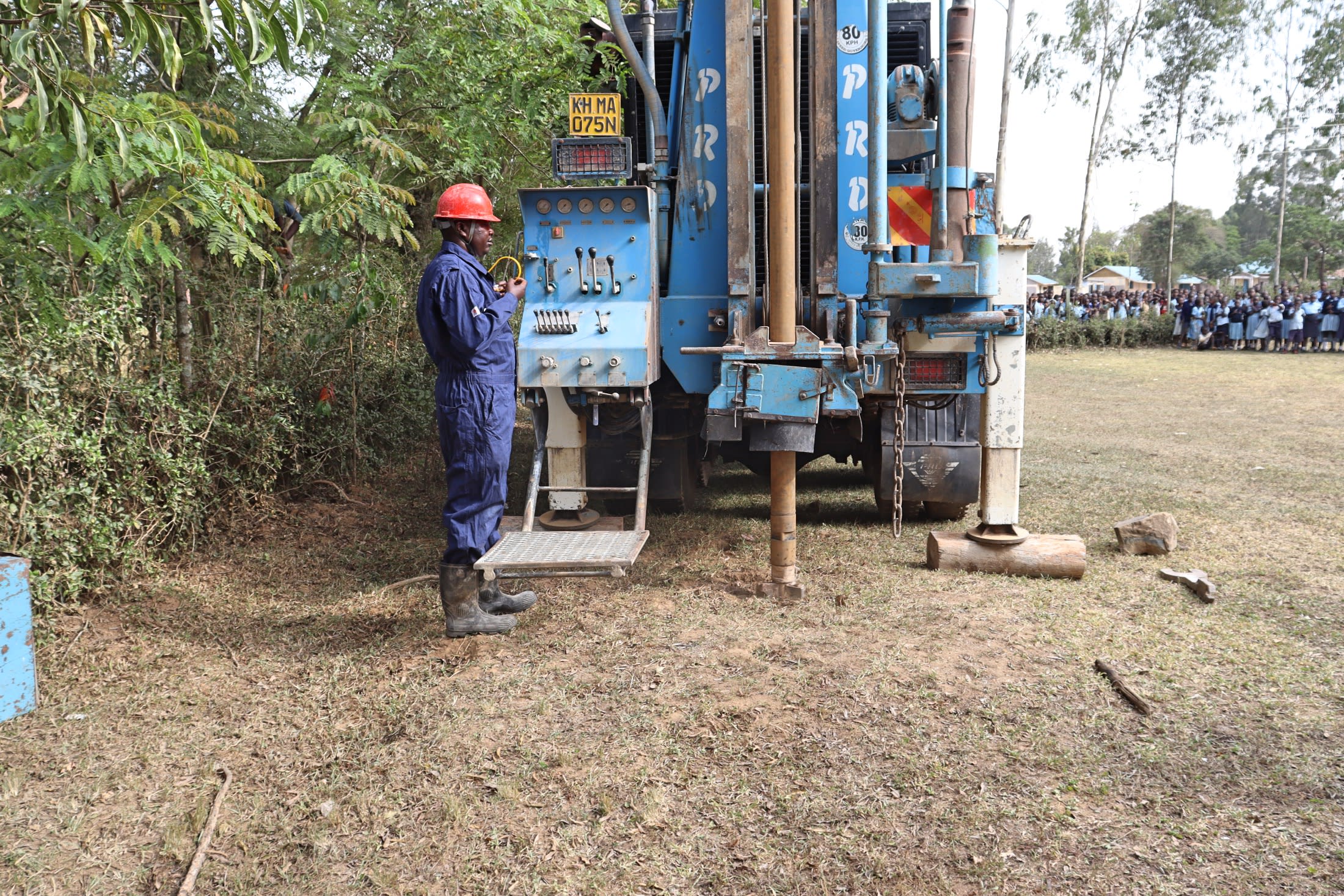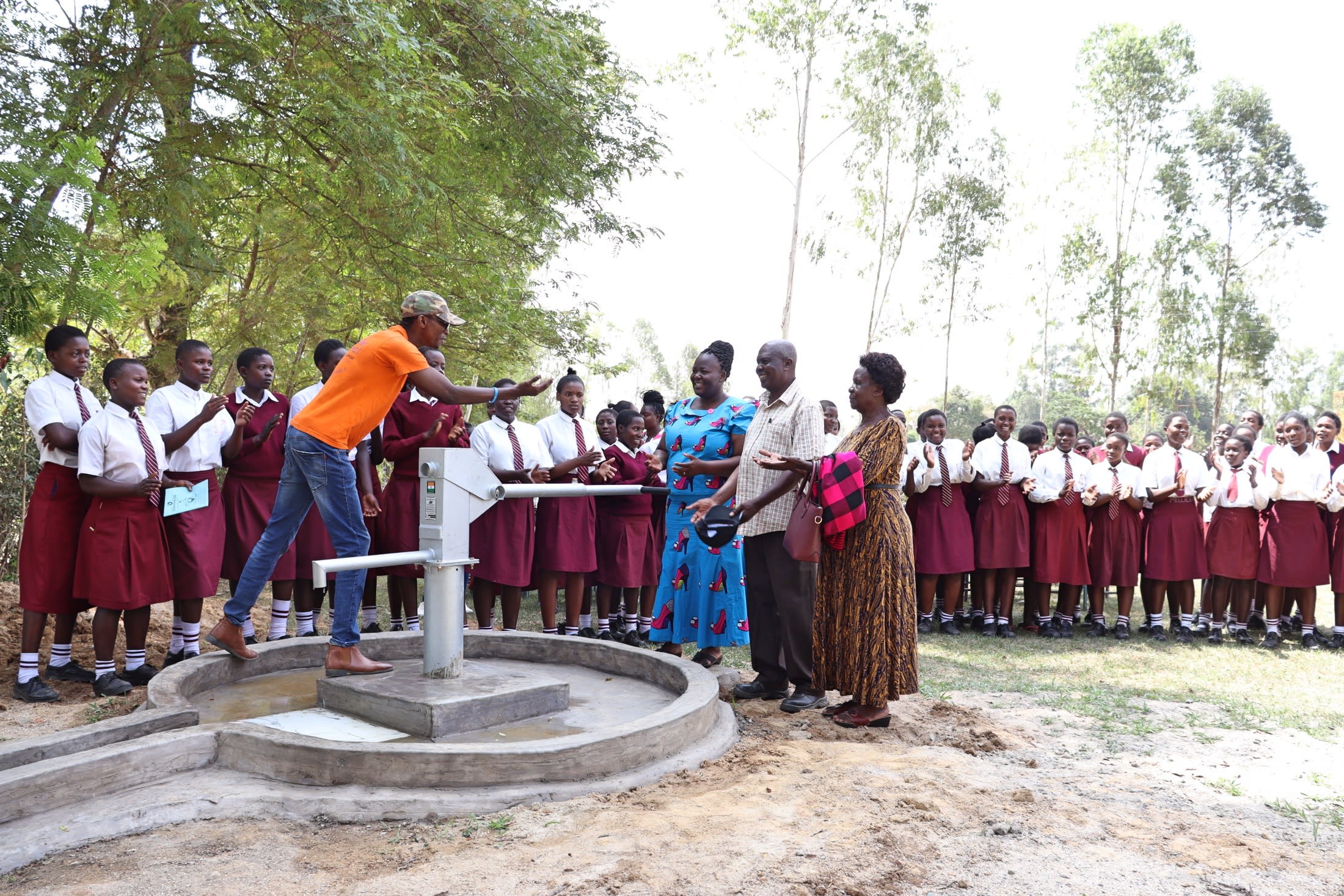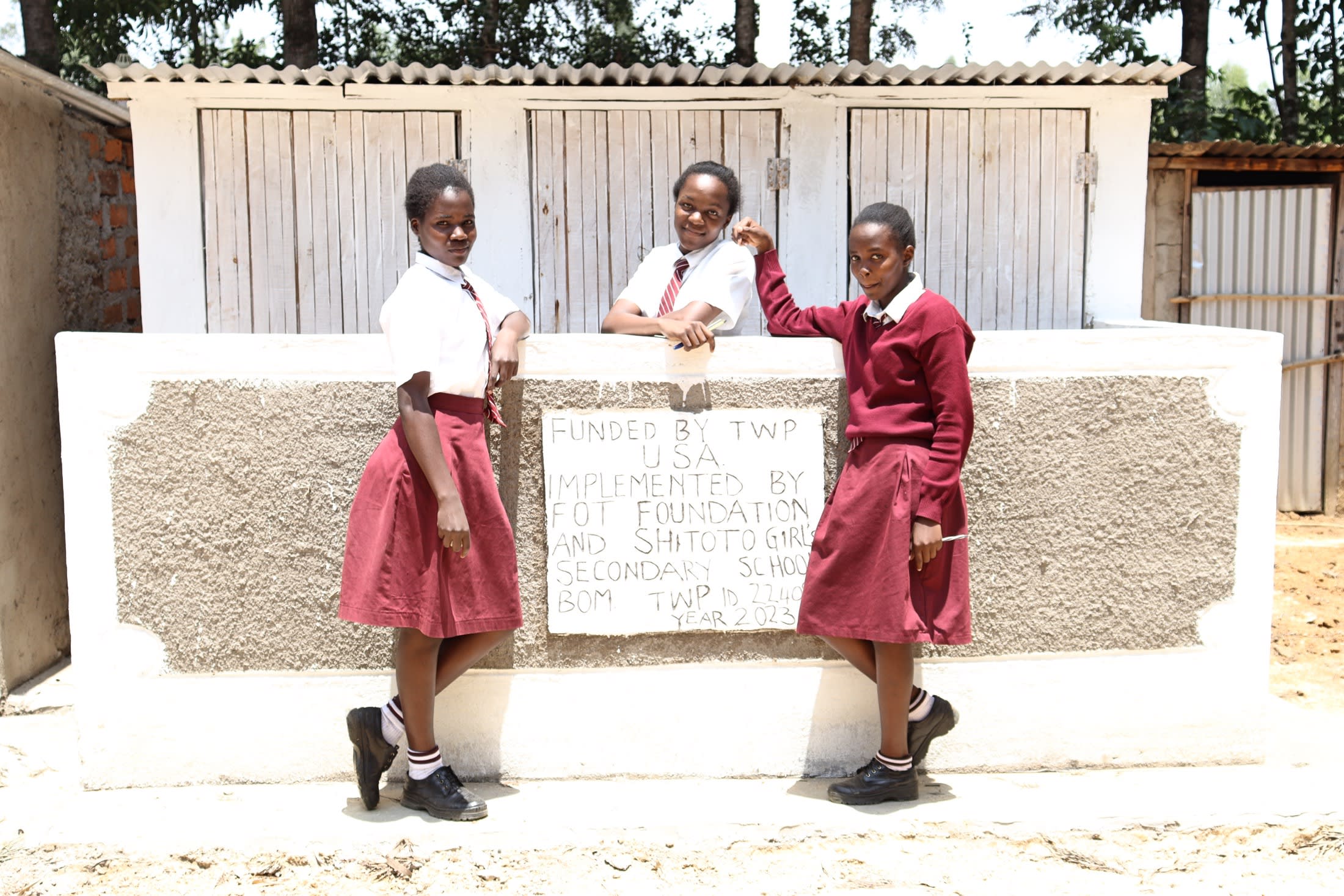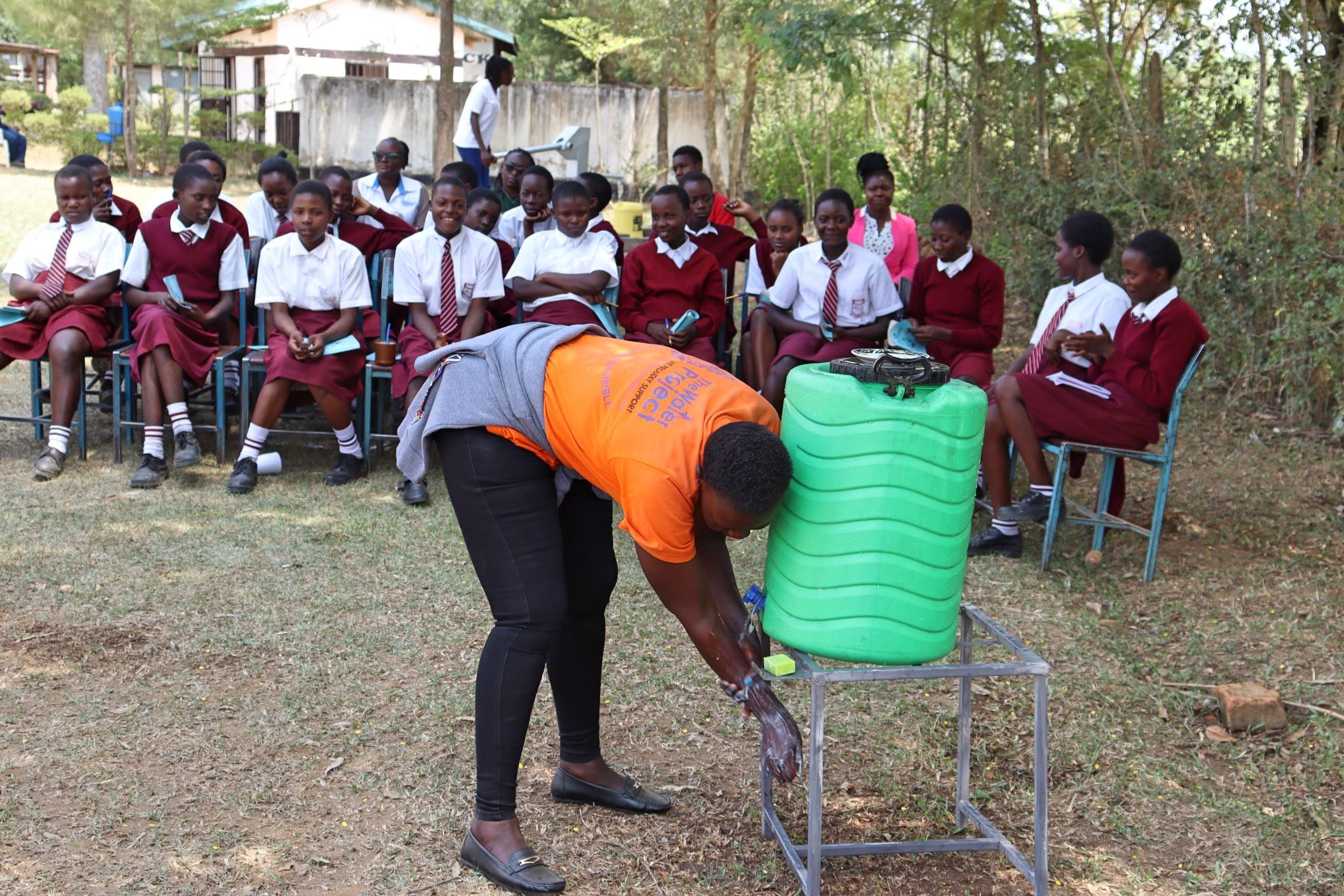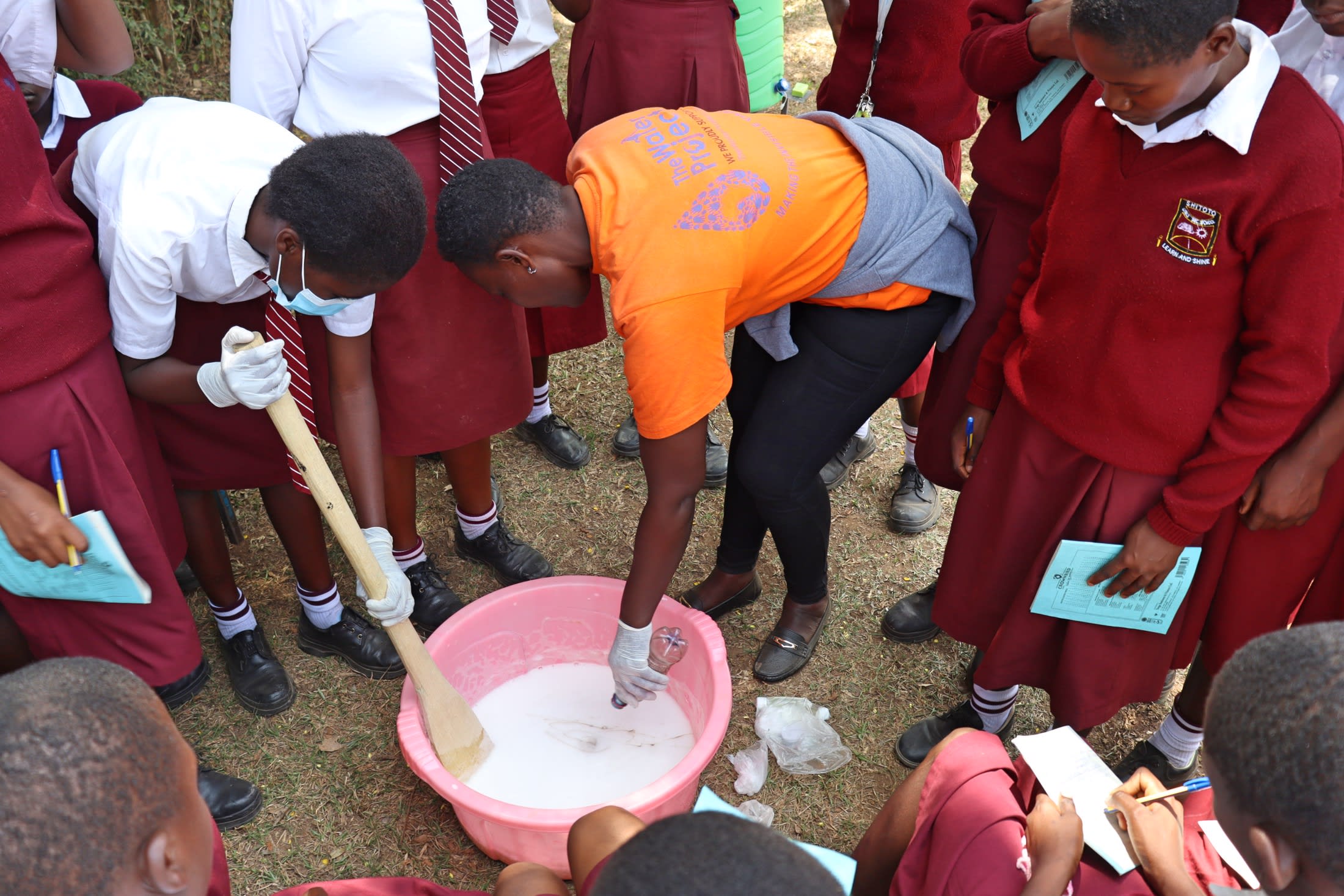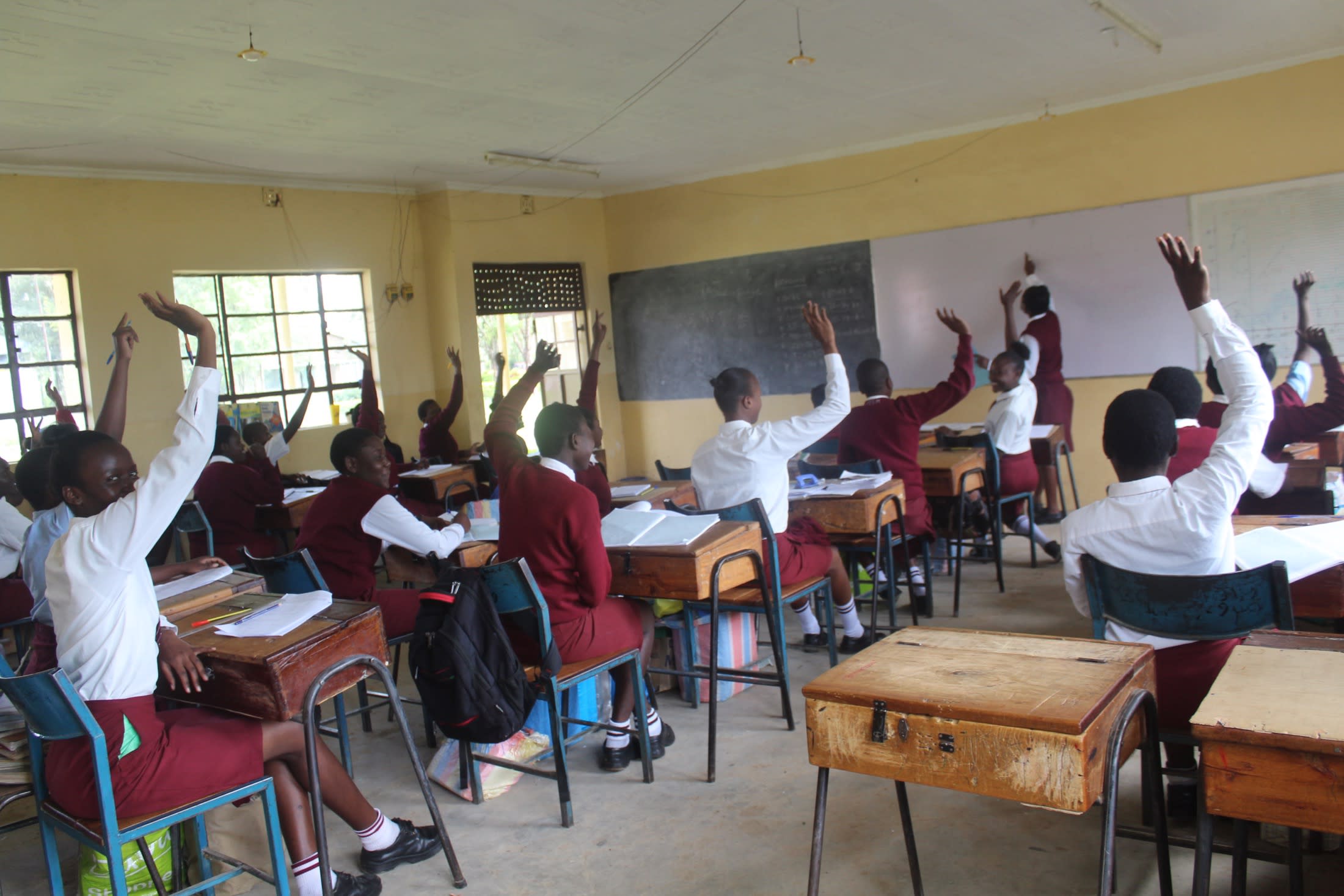The 372 students and staff at Shitoto Girls Secondary School face a water crisis that is making them weary.
Shitoto is a boarding school which means in addition to daily drinking water, additional water is needed for cleaning, cooking, laundry, and maintaining students' daily hygiene.
But the dug well on the school campus is struggling to provide enough water. It is not deep enough, and the discharge is very slow, especially during the dry season when it slows to a trickle. The amount of time it takes for students to collect water is causing them to miss valuable time in class, slowing their academic progress.

"I waste a lot of time fetching water at the water point during [the] dry season because the water flow [is] at a low rate. This reduces my time for study, resulting in [a] drop in my grades academically," said 16-year-old Elizabeth N (seen above).
Another issue with the well is that any water it does provide is contaminated. The location of the current well is misplaced and too near latrines and the kitchen. The water is not safe to drink, but without another choice, the school is forced to buy chlorine and treat the water. But even with treatment, some of the students still suffer from diseases caused by contaminated water like typhoid.
"[The] water situation affects me personally since more time of my lessons is wasted during fetching water, especially during the dry season, the flow is low thus takes a lot of time to fill a container. This will tend [to] reduce the student's performance in my subject," said 57-year-old principal Lily Mbati (seen below).

"Also, it has a negative view of my school as the principal. I feel bad when the school fails because of the water crisis in the school."
Hopefully, drilling a new well at Shitoto will allow the school's water crisis to end. By getting students back to class and learning, perhaps their futures can be brighter, and the school's reputation can improve.
What We Can Do:
New Well
We conducted a hydrogeological survey at this school, and the results indicated the water table beneath it is an ideal candidate for a borehole well. Due to a borehole well's unique ability to tap into a safe, year-round water column, it will be poised to serve all of the water needs for this school's large population, even through the dry season.
The school will help collect the needed construction materials such as sand, rocks, and water for mixing cement. They will also provide housing and meals for the work team, in addition to providing local laborers. We will complement their materials by providing an expert team of artisans and drilling professionals, tools, hardware, and hand-pump. Once finished, the school’s students and staff will use water from the well for drinking, handwashing, cooking, cleaning, and much more.
The school and we strongly believe that all of these components will work together to improve standards at this school, which will help lead to better student academic performance and unlock the opportunity for these students to live better, healthier lives.
Handwashing Stations
The student health club will oversee two new handwashing stations we will provide and ensure they are kept clean and in working condition. The club leaders will fill the handwashing stations with water daily and make sure they are always supplied with a cleaning agent such as soap or ash.
VIP Latrines
Two triple-door latrine blocks will be constructed with local materials that the school will help gather. Three doors will serve the girls, and three doors will serve the boys. These new latrines will have cement floors designed to be easy to use and clean. And with a new well right on school property, there should be enough water to keep them clean.
Training on Health, Hygiene, and More
We will hold a one-day intensive training session with students, teachers, and parents. This training will cover a wide range of topics, including disease transmission routes and prevention; personal and environmental hygiene; and the operation and maintenance of the borehole, latrines, and handwashing stations. There will be a special emphasis on handwashing.
Our team of facilitators will use various methods to train, including participatory hygiene and sanitation transformation and asset-based community development. We will initiate a student health club, which will prepare students to lead other pupils into healthy habits at school and home. We will also lead lectures, group discussions and provide illustrative handouts to teach health topics and promote good hygiene practices within the school, including handwashing and water treatment. We will then conduct a series of follow-up training before transitioning to our regularly scheduled support visits throughout the year.
We and the school strongly believe that all of these components will work together to improve standards at this school, which will help lead to better student academic performance and will help unlock the opportunity for these students to live better, healthier lives.

 Borehole Well and Hand Pump
Borehole Well and Hand Pump
 Rehabilitation Project
Rehabilitation Project














